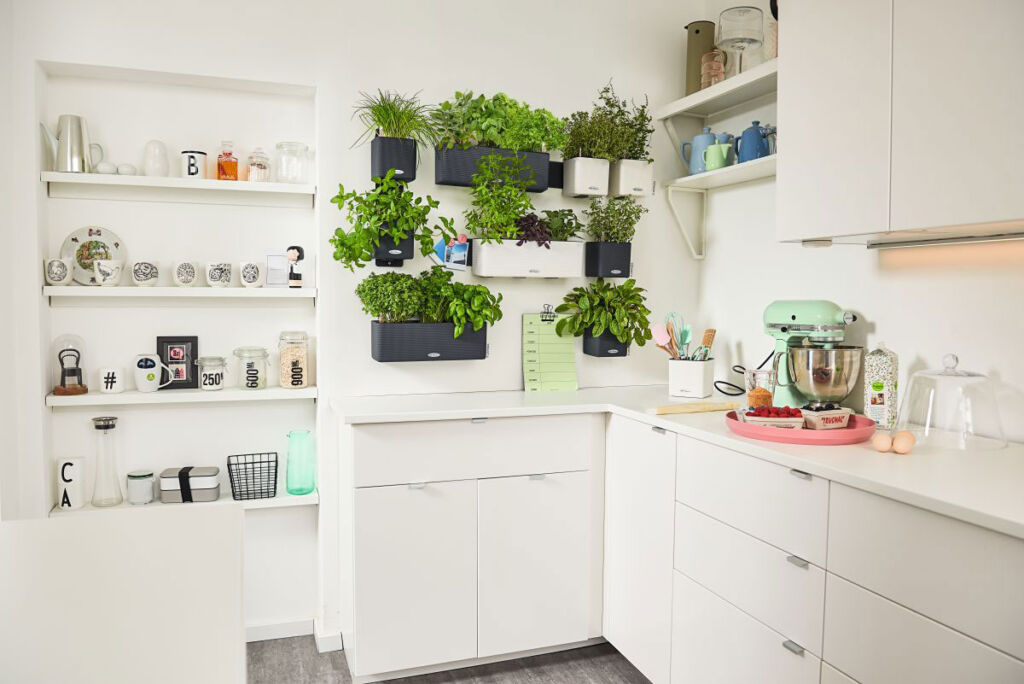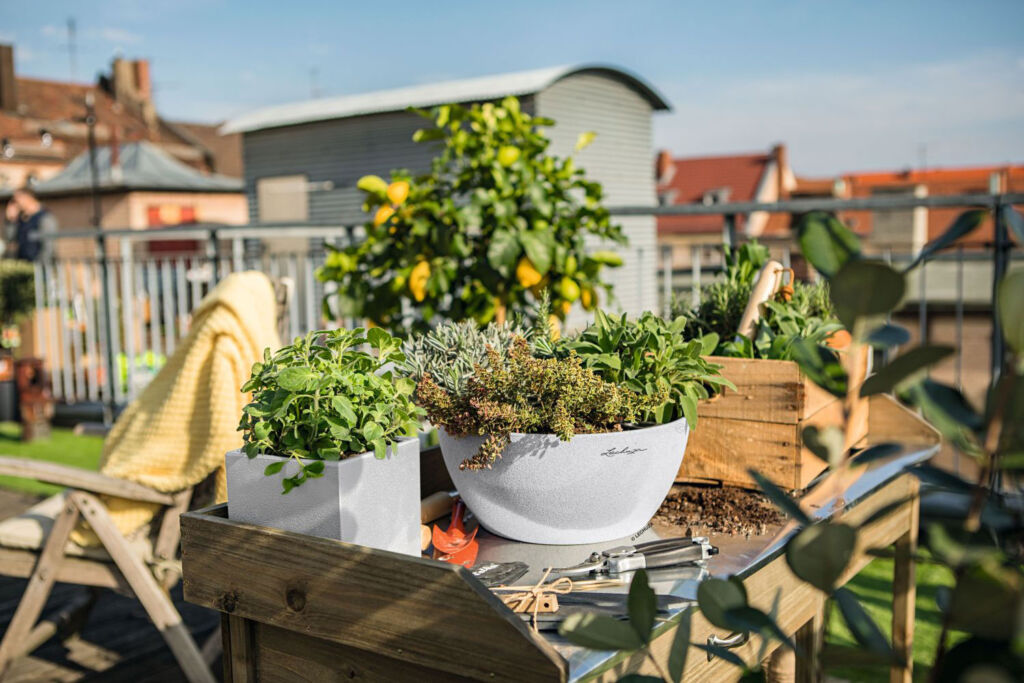

Humans depend upon healthy and abundant flora for very obvious reasons. In fact, recent scientific studies have proven that we are hard-wired to be at one with nature. In this feature, The experts at LECHUZA explain how we can foster a healthier living environment indoors through the mindful cultivation of houseplants.
For anyone that immediately scoffs at the idea that human beings are hard-wired to be at one with nature, the latest scientific discoveries will prove that you are wrong. Over recent months, the people behind Luxurious Magazine have been embracing the great outdoors, so much so they’ve launched a ‘secret’ side project complete with videos and podcasts to share their passion, and it’s the thehikingbug.com.
One of the things the team at The Hiking Bug discovered is a human passion for nature is contained within the genes, and it has also been scientifically proven that it can be passed down through generations.
It’s no secret that being outdoors in nature can be a massive boost to one’s mental health, but many people might not know that there are ways to bring many of the benefits of being outdoors indoors.


Alongside wholesome, nutritious food and clean water, fresh air is essential to life – and never more so in societies where more people than ever are suffering from respiratory illnesses and heart problems. When it comes to the air we breathe, a high oxygen content is naturally good, whilst pollutants and free radicals that derive from everyday chemicals, gas emissions, and electrical and electromagnetic equipment negatively impact our immediate environment.
Any office worker who’s ever experienced an uncomfortable rise in temperature and low-grade headache as the day progresses, electronic equipment heats up, and the air gets more stifling will understand just how harmful this impact can be. If you are unlucky enough to be seated close to a busy printing machine, the effect will be even more substantial.
The good news is we get to go home at the end of the working day, but the assault on our environment does not, unfortunately, stop there. Airborne toxins, domestic SMART devices and Wi-Fi might be popular – even necessary, especially for those of us who work from home – but the constant jostling for space in the airways around us is hardly conducive to our overall health.
Let’s take a closer look at the magical powers plants brings:
Just as trees and peatlands soak up carbon emissions from the wider world, houseplants offer one of the simplest and most effective ways to combat the nasties which can negatively impact our immediate lives. Here are a few of the most beneficial plants you can keep in the home, which can help in the quest for a healthier lifestyle.
Plants for pure air
The Ficus Plant (Weeping Fig) is so effective at purifying the air that its power to cleanse airborne formaldehyde, xylene and toluene have been recognised by NASA. In addition, Aloe Vera not only removes formaldehyde and benzene it also releases oxygen at night, making it the perfect plant to keep in your bedroom. They are quite fussy plants that don’t like being moved around. Place in bright, indirect light away from drafts.
Whilst it is generally renowned for its potential to bring luck, also featured by NASA is the Money Plant for its powerful ability to remove chemicals and other pollutants from the air. It is, however, toxic to cats, dogs, and small children if its leaves are ingested. These pretty, fast-growing plants are fairly easy to care for and can tolerate both full sun and indirect light.
NASA is also a fan of Gerbera Daisies, with the Agency’s Clean Air Study finding that these pretty flowering plants remove formaldehyde, benzene and trichloroethylene from the air whilst releasing oxygen at night and reducing CO2. They prefer bright sunlight in summer, spring and autumn and indirect light during the winter. As their soil needs to be kept moist, you can achieve optimum growing conditions for Gerbera Daisies with any one of LECHUZA self-watering planters, all designed with modern living in mind.
Broad Lady Palms are one of the very few plants that can reduce the levels of ammonia that derive from household cleaning products. Large ones are quite expensive, so you might want to consider growing one from scratch. You can put these in the bathroom as they thrive in humid conditions and will enjoy generous watering, meaning that LECHUZA self-watering planters with their inbuilt irrigation system are the ideal choice for these valuable houseplants.
Already a lifeline for pandas, Bamboo helps get rid of toluene from the air whilst also filtering out formaldehyde and benzene and increasing the oxygen supply. The Chinese Evergreen also emits a high oxygen content whilst purifying indoor spaces of harmful chemicals. Usefully for those running out of window space, this plant thrives in full shade and only needs to be watered occasionally; you just need to focus on keeping the soil moist.
Areca Palm’s are not only great at purifying the air, but these excellent houseplants can also help to strengthen the nervous system when kept at close range. Areca Palms prefer filtered light and need plenty of watering. Place them in one of LECHUZA’s state-of-the-art self-watering planters to help prevent these incredibly useful plants from drying out.
Ficus Robusta (Rubber Plants) are relatively easy to care for and improve air quality according to NAS; their large leaves effectively absorb and break down airborne chemicals. They also absorb exhaled carbon dioxide and convert it to breathable oxygen whilst eliminating bacteria and mould spores from the air. They can thrive in dim light, and you should allow them to dry out between watering. Place them in a generous planter with plenty of space to grow into as they can reach up to 8 feet tall.
Snake Plants get very busy at night producing oxygen and removing pollutants, including benzene, formaldehyde, trichloroethylene, xylene, and toluene. Ideal for the bedroom, Snake Plants are fairly easy to keep and can tolerate shade.
Plants for beautiful skin
Aloe Vera is incredibly useful as a topical skin treatment, helping to fix minor scrapes, burns and insect bites whilst locking in moisture and improving the skin’s defensive barrier. Aloes don’t need much water and are easy to keep as long as they get plenty of sunlight.
Plants to ward off evil spirits!
Last but definitely not least, the benefits of houseplants extend well beyond the physical, not only offering huge aesthetic appeal but enhancing the atmosphere in ways that subtly reduce stress and make indoor environments more conducive to rest and relaxation. Some, such as the Tulsi Plant – Holy Basil – are even considered to safeguard homes against evil spirits whilst bringing luck, whilst a well-placed Banana Tree is thought by some to encourage financial success!
How to give your houseplants a home to be proud of
Looking after your houseplants the easy way
In today’s hectic world, one thing that most people never seem to have enough of is time. A lack of time causes people to rush, leading to people forgetting to do things. Plants require nourishment, and people often forget this. A glass of water once a week is often not enough; fortunately, there is a simple solution.
To make life simpler, invest in some LECHUZA PON, a magical substrate that provides the optimal air/water ratio for plants. It also reduces their vulnerability to diseases and also offers balanced nutrient distribution. Another big positive that comes with this is that it can be used for years without being replaced.
For more information, visit www.lechuza.co.uk.
* post-industrial material
Click here to read more lifestyle guides and news.
